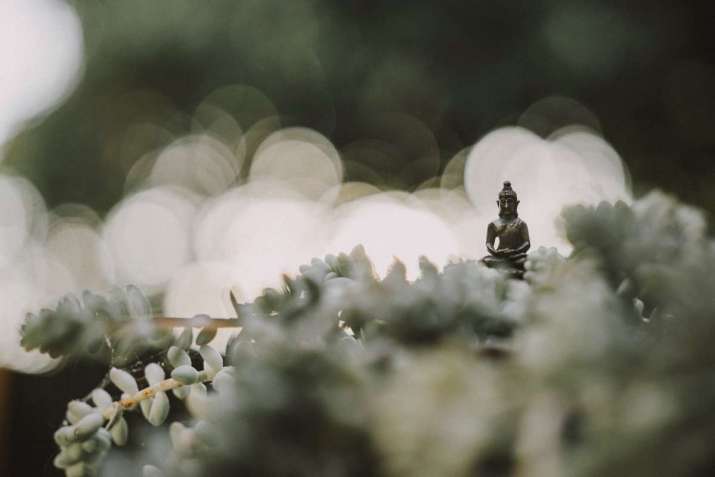
Every year in my Eastern Religions class, the question is asked: “What happens when a buddha achieves Awakening? Where does he go?”
The question is predictable, even though it is always asked with determined sincerity; as though the question had never been asked before. When my answer is to shrug (because I actually think shrugging is the right response in this case), I am met with incredulity.
“You mean you don’t know the answer?”
I shrug again.
“Shall we continue with the lecture now?”
I suppose I could answer the question, but the truth is that I can’t. Because there is no answer, which is precisely how Buddhism has left it.
If the question is pressed (and it often is), then I tell the following story:
A long time ago (in a galaxy far, far away?), I was a young, idealistic backpacker hanging out in Dharamsala—the Dalai Lama’s home-in-exile in northern India. I was living with friends, eating in small shops, going for walks as I meandered through the existential layers of my mind. And I was taking Buddhist studies classes at the famed Library of Tibetan Works and Archives, trying to make sense of this spiritual tradition with which I was falling in love.
One day, the elderly monk teaching the course introduced the concept of samsara. He described all living beings as trapped in a cycle, going round and round, but ultimately moving forward toward Awakening. He spoke in Tibetan and a young woman beside him translated into English. I was sitting on the floor surrounded by dozens of others—Tibetans and foreigners alike—trying to take it all in. We were expected to sit quietly and absorb what he had to say, but I was soon flooded with a burning question.
I raised my hand.
“If we are all moving forward through samsara,” I asked when he called on me, “does this mean that we will all eventually achieve Awakening? And if so, what happens then? Does the world explode if there is no one left in it? Where do we all go?”
The teacher eyed me carefully, then stood up and did the strangest thing. He barked at me in Tibetan for what seemed to be an eternity, and then stormed out of the room.
Everyone stared at me accusingly. I looked to the interpreter in bewilderment. She looked back at all of us in discomfort.
“What did he say?” I asked.
She took a deep breath, and replied: “He said, ‘What is wrong with all you Westerners? Why do you always want to know the end of the story?! Are you awakened yet? I don’t think so. So instead of worrying about the end of the story, just work on getting awakened now. You will find out how it works when you get there!’”
And just like that, he left.
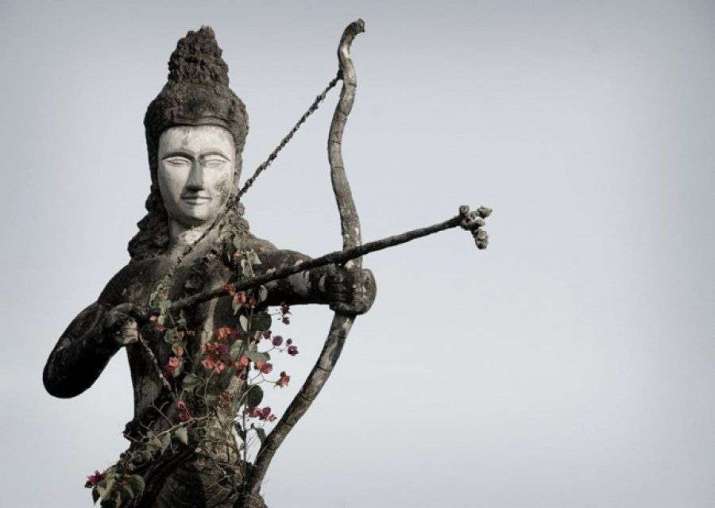
arrow underlines the futility of metaphysical speculation. From pinterest.com
At the time, I didn’t know what to do with the experience. I mulled it over, thought about it repeatedly, felt bad about it often, but most of the time I just wondered. But years later, I have come to love his reply.
I now realize that this monk, whose name I do not remember, whose story I know nothing about, smashed a vajra sword over my head with that reply. He told me to abandon my quest for a logical explanation where mythical narratives are concerned; to stop worrying about how it all works and instead focus on the important stuff. The point is to attain Awakening, not to figure out the system. Because cosmic mechanics are not the point.
The best part, however, is this: the teaching I believe he gave me (I assume it was a teaching, but I realize he also could simply have been exasperated), has been given before.
In the Cula-Malunkyovada Sutta (MN 63), the Buddha is asked by a monk about the end of the universe and where buddhas go after they die. In that case too, the student is reprimanded for his curiosity. “Did I ever promise you the answer to those questions if you follow me?” the Buddha demands. “Did I ever tell you that this was the point of my teaching?” The point is to reach Awakening. Don’t waste your time on anything else.
After telling this story and making the parallel to the Cula-Malunkyovada Sutta, my students inevitably ask me one more question: “Do you think the Buddha was dodging the question? Maybe he didn’t know the answer and he just yelled to avoid admitting it?”
My answer is to shrug.




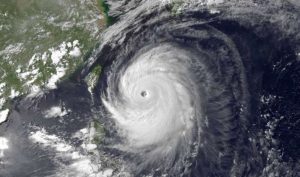
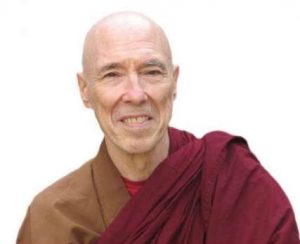




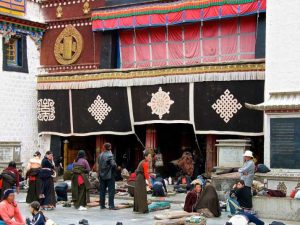



The Tibetan monk’s response makes sense, but not quite. If he really meant that we should not concern ourselves about the Buddhas’ (plural form for all those who are and will be awakened) state after samsaric death, then he (Tibetan monk) as well as Mahayana and Vajrayana monks, teachers, masters, and lamas should have long time ago and even until now STOP from teaching about the Sambhogakaya notion which posits Buddha land/s such as that of the Pure Land (which as for Nagarjuna was actually not a place outside of death but the essence of the mind upon reaching enlightenment).
Zen, instead, is in proper mind by emphasizing to students to just focus on the NOW, not the past (which includes past lives) neither the next life after samsaric death.